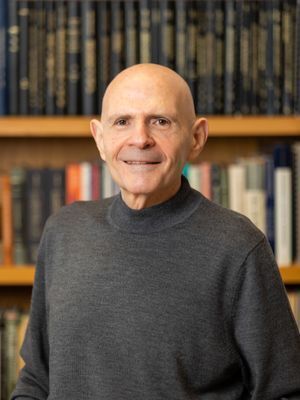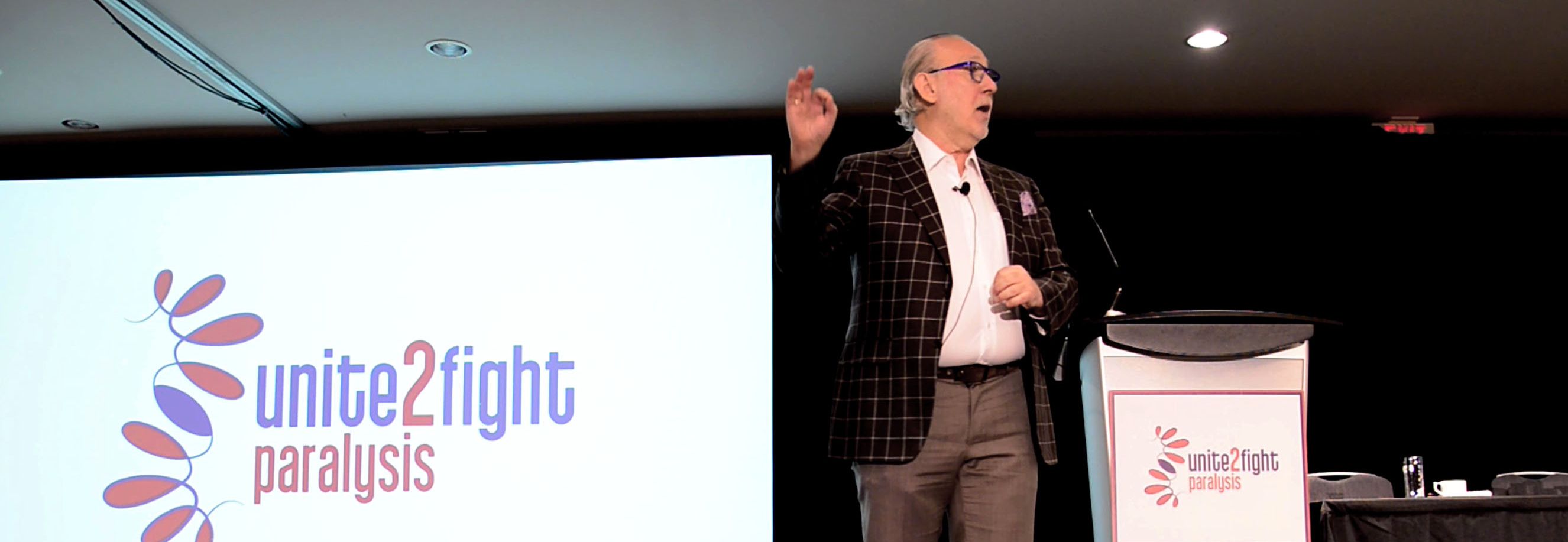
Samuel Stupp, PhD
Board of Trustees Professor, Materials Science and Engineering, Chemistry, Medicine, and Biomedical Engineering, Northwestern University; Director, Northwestern’s Simpson Querrey Institute for BioNanotechnology
Abstract
Potential Supra-Therapies for Spinal Cord Injury
The Stupp laboratory at Northwestern University has demonstrated over the past two decades that injectable scaffolds based on molecules known as peptide amphiphiles can form bioactive nanofibers that mimic those present around cells in our bodies. These nanofibers contain tens of thousands of molecules and are therefore known as “supramolecular” assemblies; they have been molecularly designed by the laboratory to activate cell receptors or bind specific growth factors that promote regeneration of tissues. The systems developed so far include scaffolds to grow bone in order to fuse the spine, create blood vessel networks, differentiate neural stem cells into neurons, and regenerate cartilage or muscle, among others. We also developed earlier nanofibers containing one signal with the capacity to reduce glial scarring and axonal regeneration in a murine model of “mild” spinal cord injury. This lecture will first introduce the broad platform, and then report on a recent breakthrough involving systems to repair a severely injured spinal cord. In this work it was discovered that enhanced motion of bioactive molecules within the supramolecular nanofibers, as well as the use of two distinct signals improves significantly both function and spinal cord repair. In addition to locomotor recovery, axonal regeneration, and reduced glial scarring, this system led to notable differences in growth of new blood vessels, re-myelination of axons, and survival of motor neurons after injury. The Stupp laboratory is currently interested in translating this discovery to the clinic in order to treat spinal cord injury patients.
Bio
Samuel Stupp is Board of Trustees Professor of Materials Science and Engineering, Chemistry, Medicine, and Biomedical Engineering at Northwestern University. He also directs Northwestern’s Simpson Querrey Institute for BioNanotechnology and the Center for Bio-Inspired Energy Science, an Energy Frontiers Research Center funded by the U.S. Department of Energy. Stupp’s interdisciplinary research is focused on developing self-assembling supramolecular nanostructures and materials for functions relevant to renewable energy, regenerative medicine, and robotic soft matter. He is a member of the National Academy of Sciences, the National Academy of Engineering, the American Academy of Arts and Sciences, the Royal Spanish Academy, and the National Academy of Inventors. His awards include the Department of Energy Prize for Outstanding Achievement in Materials Chemistry, the Materials Research Society Medal Award, the International Award from The Society of Polymer Science in Japan, the Royal Society Award in Soft Matter and Biophysical Chemistry, and three national awards from the American Chemical Society: the ACS Award in Polymer Chemistry, the Ronald Breslow Award for Achievement in Biomimetic Chemistry, and the Ralph F. Hirschmann Award in Peptide Chemistry.






















